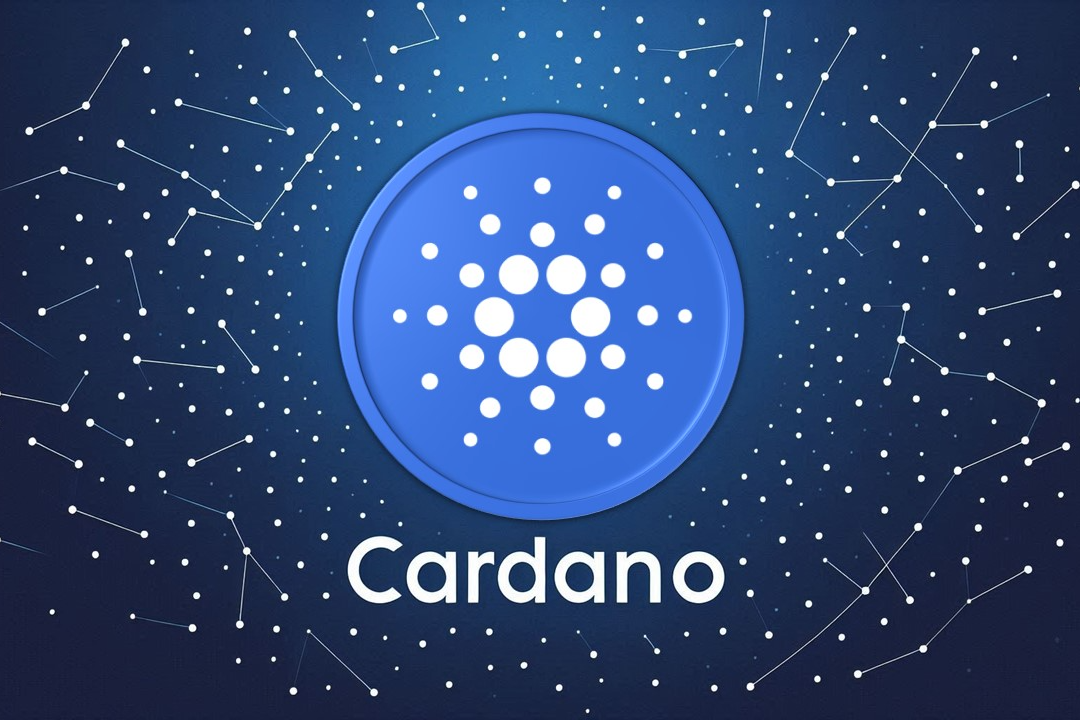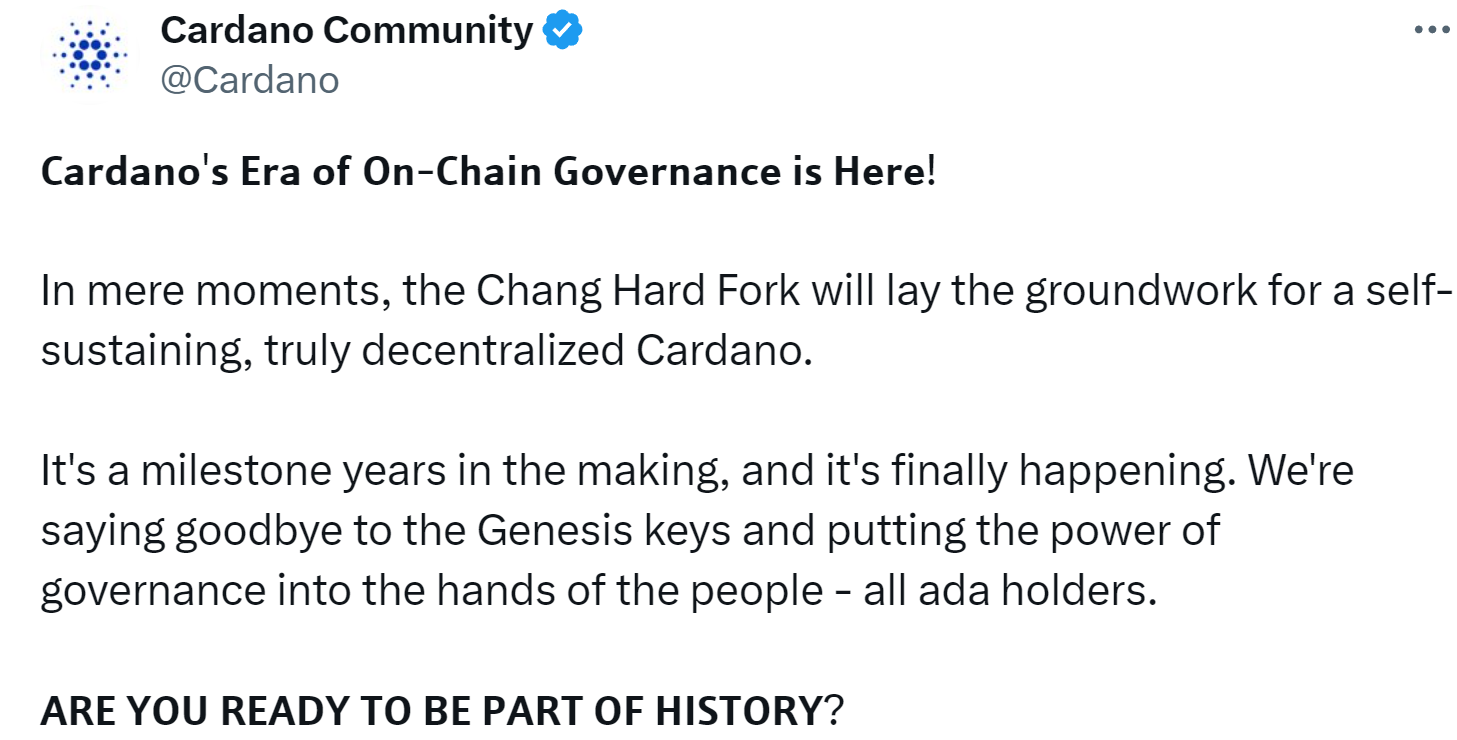2024-09-02

The Cardano blockchain has recently
undergone a significant upgrade with the activation of the Chang hard fork.

This upgrade marks a pivotal shift
towards decentralized governance for the Cardano ecosystem. Here are some key
points about this development:
The Chang hard fork introduces a new
decentralized and on-chain governance structure where ADA token holders can
elect representatives and vote on development proposals.
This is part of Cardano’s broader goal
to achieve full decentralization.
The new governance model includes three
main bodies: the Constitutional Committee, Delegate Representatives (dReps),
and Stake Pool Operators (SPOs).
The upgrade is being rolled out in two
phases. The first phase, already live, establishes an Interim Constitutional
Committee to oversee the initial governance actions.
The second phase, expected in about 90
days, will fully empower the new governance bodies.
CIP-1694 is "Cardano Improvement
Proposal," that impose the new community governance structure.
Cardano's CIP-1694 is a proposed update to the Cardano blockchain that aims to introduce a new governance model, marking the beginning of the Voltaire era.
While Cardano's development is divided into major eras, such as Byron, Shelley, Goguen, Basho, and Voltaire.
Voltaire is the fifth and final
phase in Cardano's development roadmap, focusing on full decentralization by
introducing a system of decentralized governance.
Key Features of CIP-1694:
1. On-Chain
Governance Mechanism: CIP-1694 proposes a framework where decision-making is
handled directly on-chain, allowing the community to vote on protocol changes,
fund allocation, and other governance matters.
2. Voting System: The proposal
outlines a mechanism where ADA holders, stake pool operators (SPOs), and
delegated representatives can participate in voting. The power of votes can be
weighted based on the amount of ADA staked or held, similar to other
Proof-of-Stake (PoS) systems.
3. Constitutional
Committee: A new entity, the Constitutional Committee, is introduced to serve
as a governing body that ensures the integrity and security of the governance
process. The committee will have veto power over certain decisions, adding a
layer of checks and balances.
4. Proposal
Submission and Review Process: CIP-1694 details how governance
proposals will be submitted, reviewed, and voted upon. This includes clear
guidelines on who can submit proposals, how they are reviewed, and the criteria
for approval.
5. Decentralization
of Governance: This CIP moves Cardano further towards full
decentralization by reducing the reliance on centralized entities like IOG
(Input Output Global) and allowing the community to take more control over the
network’s direction.
6. Incentive
Mechanisms: To encourage participation in governance, the CIP
includes mechanisms that reward participants (e.g., ADA holders) for their
involvement in voting and other governance activities.
CIP-1694 is a significant step for
Cardano as it seeks to establish a decentralized governance model that is
robust, secure, and scalable. If implemented, it would pave the way for a
self-sustaining system where the Cardano community has a direct role in the
network's evolution.
Chang upgrade is a significant
milestone in Cardano’s roadmap, marking the beginning of the Voltaire era,
which focuses on achieving full decentralization.
The "Chang" upgrade which is
part of Voltaire era is a specific initiative focused on improving the
protocol's governance.
This move aligns Cardano with the
decentralized ethos of the blockchain industry and the upgrade turns ADA into a
governance token and it could potentially enhance the utility of the ADA token.